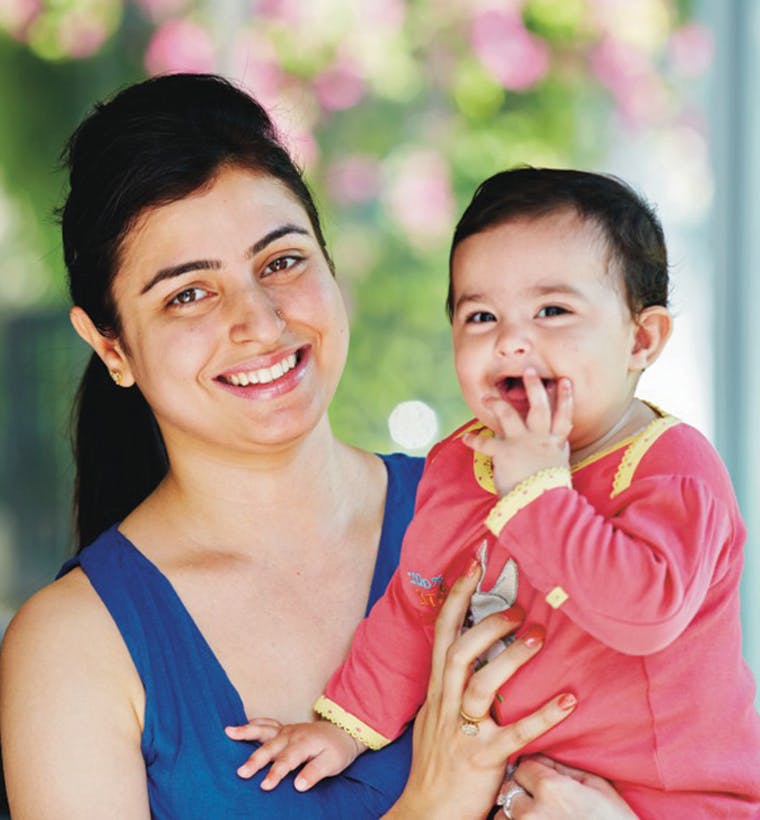Teething

Teething
When?
Babies can get their first teeth (Milk teeth) anywhere between three to fifteen months – although discomfort may start earlier. This process is known as teething. Teething can be different for each child and while many have little or no problems, some children find teething very painful.
What can you do to help?
- Rub sore gums gently with your finger.
- Give your baby a teething ring - either a soft rubber one, or the plastic type that are kept in the refrigerator.
- Consider using ice made with boiled water.
- If your baby is distressed or irritable, or needs help to settle at night, give an appropriate analgesic/anti-pyretic such as paracetamol as directed for this age.
- Avoid hard sharp-edged toys that could damage teeth and gums.
What not to do
- Don’t dip pacifier or teething rings in honey or sweet foods, as it may lead to dental decay (and honey shouldn’t be given to babies under 12 months).
- Don’t suck baby’s pacifier and give it back to them, as you will transfer bacteria from your mouth to theirs.
- Don’t use teething gels that contain aspirin.
Teething may also be associated with
- Rosy, flushed cheeks
- Increased dribbling
- Tugging at ears
- Chewing on everything
- Tender swollen gums
- Irritability
- Disturbed sleep
- Poor appetite
- Loose, frequent stools
- Sore red bottom or rash
As a rule, teething does not cause a high fever (over 102 Farenheit, 39 Celsius). If baby has a high temperature, see your doctor.
Related links




